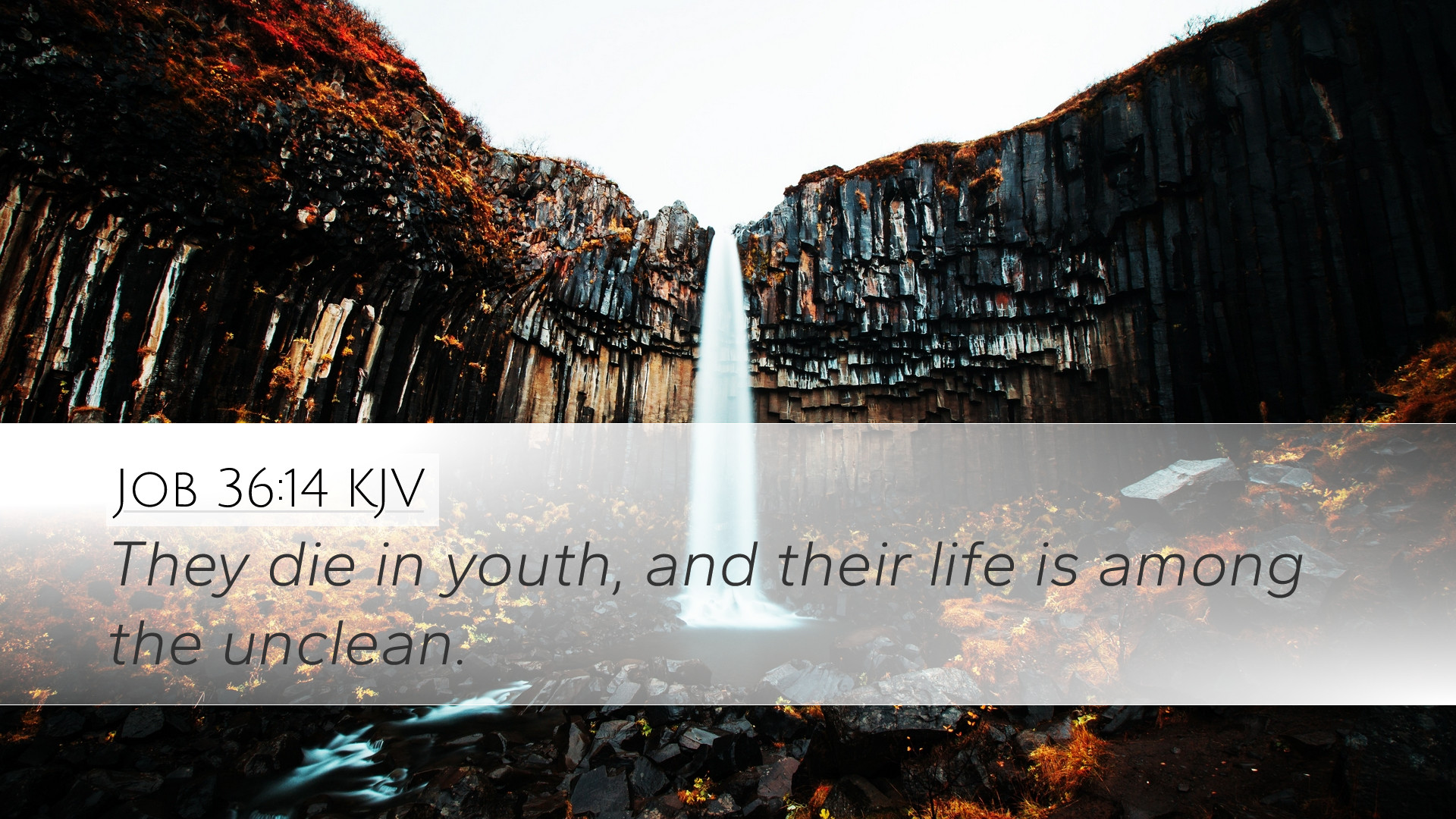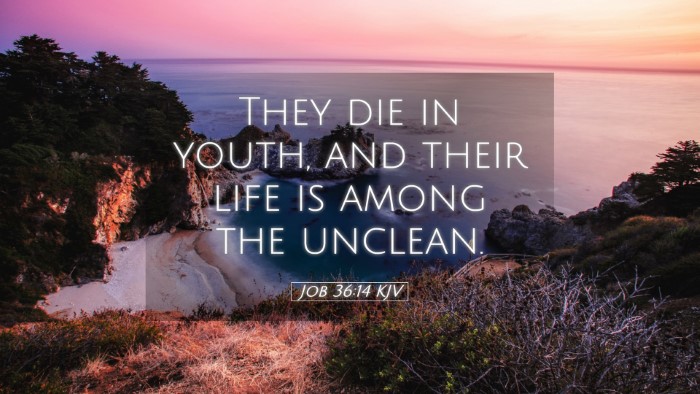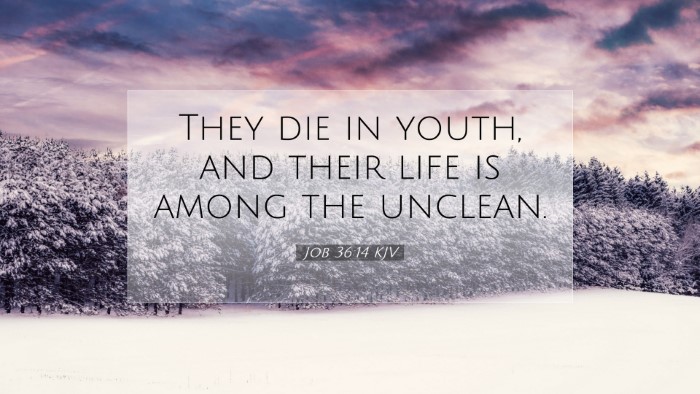Commentary on Job 36:14
"They die in youth, and their life is among the unclean."
Introduction
The Book of Job is a profound exploration of suffering, justice, and the nature of God’s governance over the world. In Job 36:14, we find a complex statement regarding the fate of the wicked and their potential demise. This verse opens up deep theological reflections that are pertinent for pastors, students, theologians, and Bible scholars.
Contextual Analysis
Job 36 is part of a discourse by Elihu, who represents a more youthful and zealous figure among the comforters. Elihu's aim is to underscore God's sovereignty and the moral order of the universe. Verse 14, specifically, suggests a connection between the premature death of the wicked and their separation from God’s righteousness and favor.
The Fate of the Wicked
- Matthew Henry: He emphasizes that the premature death of the wicked does not point to God's inability to save them but reflects their moral state and rebellion against God. Henry suggests that their untimely demise serves as a divine judgment where God's righteousness and holiness cannot tolerate evil.
- Albert Barnes: Barnes articulates that this verse illustrates the consequences of a life lived in sin. He notes that their death in youth signals an immediate judgment from God, as they are unable to repent and turn towards righteousness, dwelling instead in the consequences of their actions.
- Adam Clarke: Clarke describes the “unclean” as those who are morally or ceremonially defiled. He interprets this as a broader commentary on spiritual death—their lives are devoid of true goodness or righteousness, which leads to their demise young.
Theological Implications
The implications surrounding this verse are profound in understanding God's moral governance. Elihu seems to posit that suffering and death among the wicked is a testament to God's justice.
Divine Justice and Human Perception
- Understanding Suffering: The commentary invites deeper discussions on how suffering is perceived in the light of divine justice. Suffering may serve a purpose beyond human comprehension, prompting introspection on individual lives and society at large.
- The Nature of God's Governance: It raises questions about God's nature in allowing suffering while remaining just and holy. Can divine justice coexist with apparent chaos in the world?
The Role of Repentance
Each commentary urges the importance of repentance. The notion that the wicked die without turning back to God prompts believers to consider the importance of humility and confession in their lives.
Practical Applications
For pastors and church leaders, Job 36:14 invites serious consideration of how sermons can address the themes of sin, judgment, and the grace of God. The statement serves as a prompt for exploring both the consequences of unrepentant lives and the hope for redemption through repentance.
Encouragement for the Righteous
- Hope amidst Trials: The fate of the wicked stands in stark contrast to that of the righteous, reminding believers of the ultimate justice of God. This can serve as encouragement that while the righteous may experience suffering, they are under God’s watch and care.
- Call to Witness: This insight also serves as a call to engage with those who may be living unrighteously, sharing the hope found in Christ and the necessity of turning away from sin.
Conclusion
Job 36:14 opens a window into understanding the character of God as just, the reality of sin, and the necessity of repentance. Commentaries from Matthew Henry, Albert Barnes, and Adam Clarke collectively enhance the understanding of this verse through their theological, contextual, and practical insights. As we reflect on the fate of the wicked, let it stir our hearts towards God’s holiness and grace, recognizing our need for continual repentance and faith.


